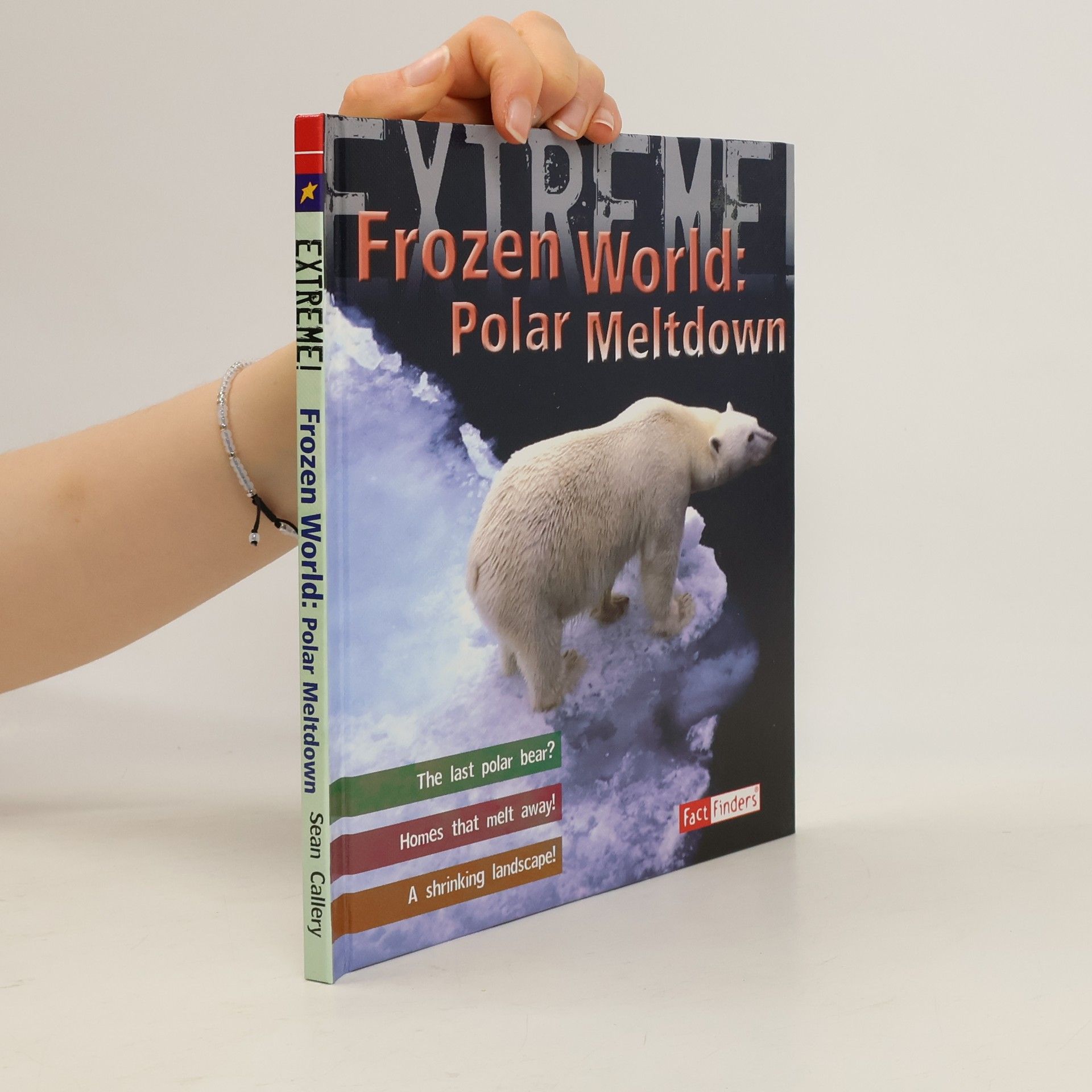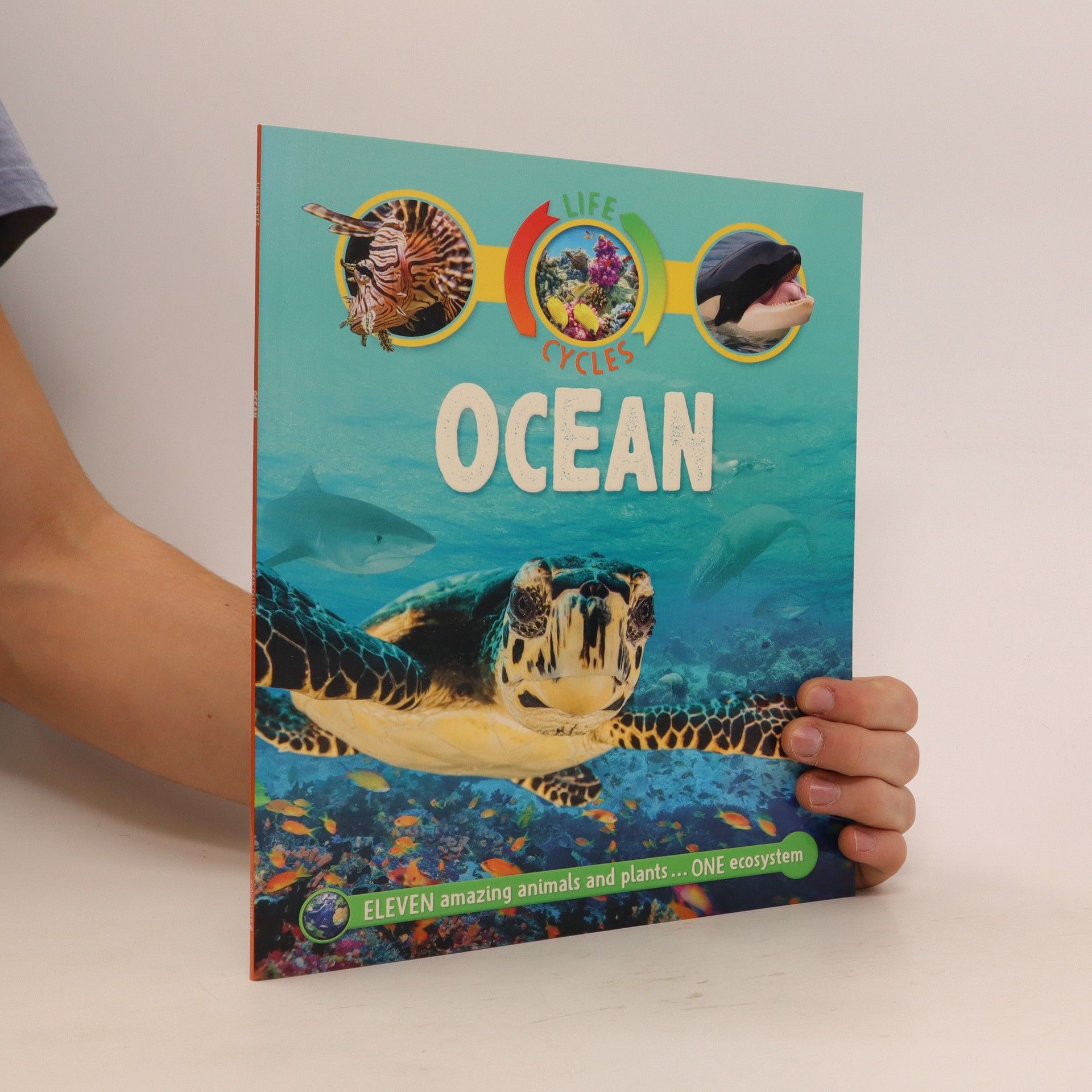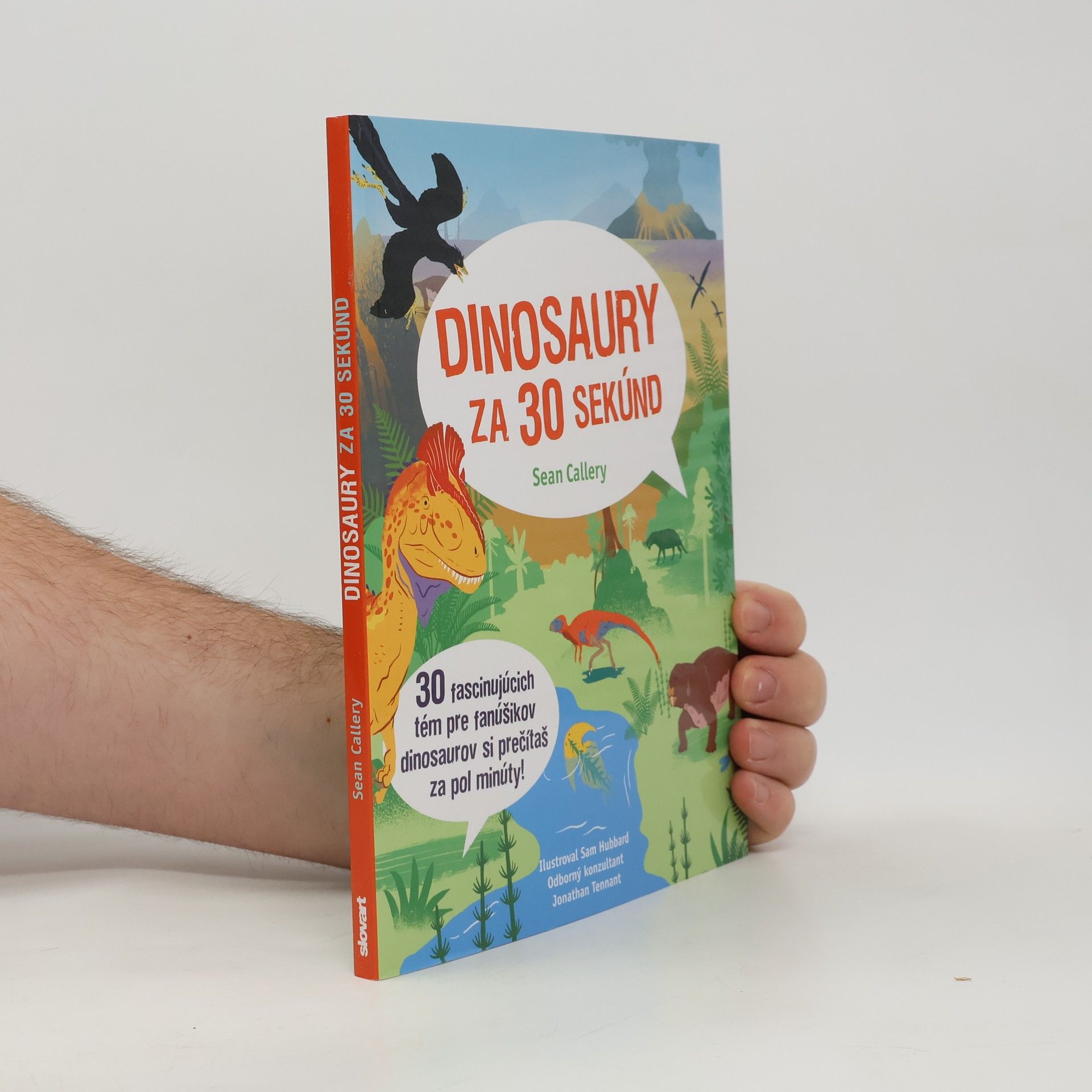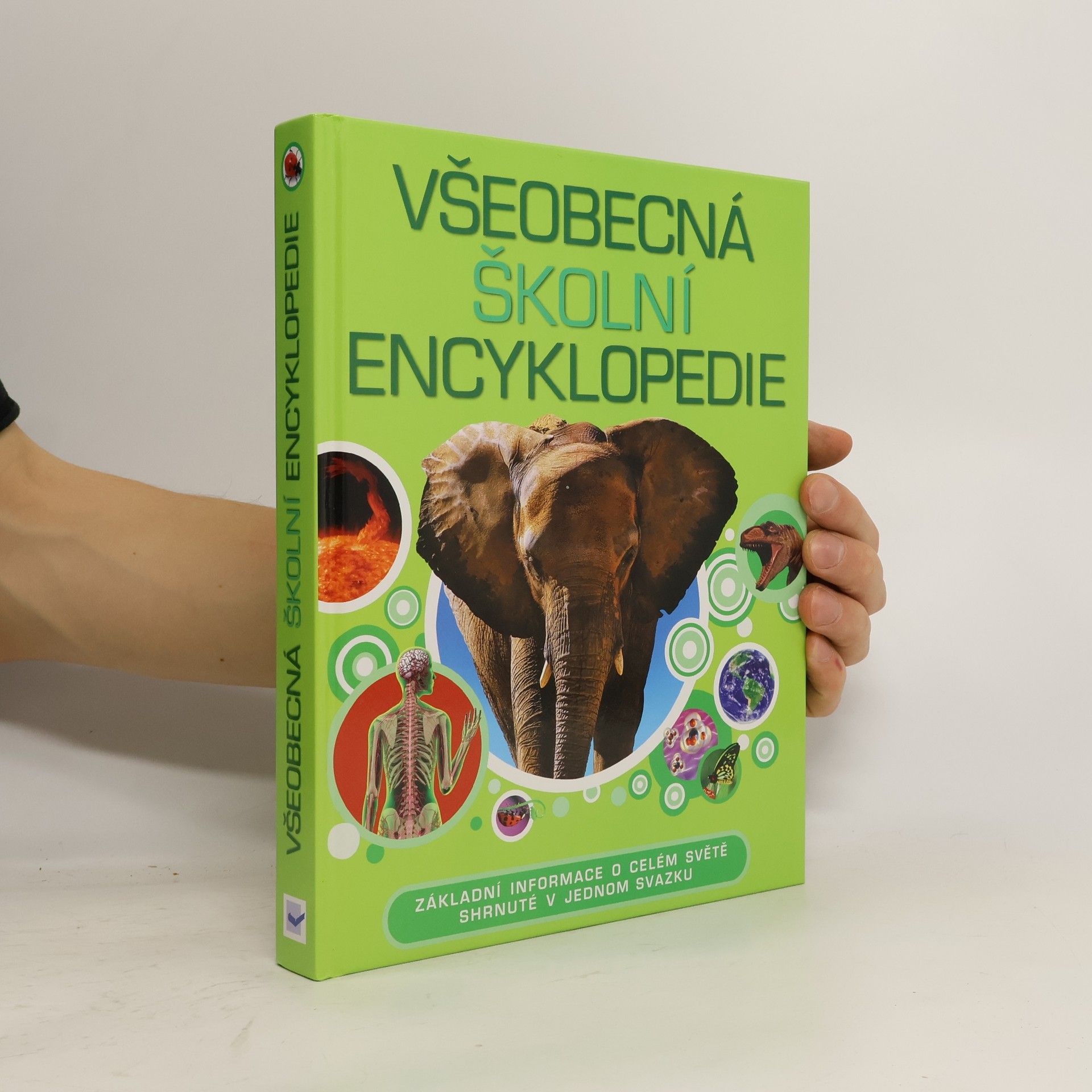Sean Callery Book order (chronological)






The Human Race
- 96 pages
- 4 hours of reading
This fully illustrated, large format book, explores human achievements and the desire to be the first, the fastest, the best in history.
Dinosaury za 30 sekúnd
- 96 pages
- 4 hours of reading
30 fascinujúcich tém pre fanúšikov dinosaurov si prečítaš za pol minúty! Táto dobrodružná kniha ťa vezme na očarujúcu cestu vedúcu od rozvoja prvých foriem života na našej planéte až po zrod dinosaurov a ich vyhynutie. Nájdeš v nej tridsať kapitol, v ktorých sa dozvieš, z čoho sa tieto tvory vyvinuli, čím sa živili, ako sa správali, ako vyzerali a čo sa vedci o nich dozvedeli z ich skamenených pozostatkov.
Discover which creatures are at the top and bottom of three ocean food chains, and learn what happens at each stage of their life cycle. At the end of each spread, use the picture clue to guess which ocean predator is waiting to pounce! Explore the Indian ocean, Pacific ocean and the Atlantic ocean to find out which creatures live there... and which will make a tasty snack!Each book in this essential series reveals the life cycles of eleven fascinating living things in a particular habitat. The life cycles link together to create three food chains. At the end of the book is a simple overview of how the three food chains interact to create a food web. With clear text and punchy photographs, this is a captivating introduction to habitats and ecosystems.
There are 118 elements in the periodic table - learn what each one does and how you interact with them every day in this stunning full-color photographic guide! Looking at the periodic table can be a bit daunting... how can you possibly remember what 118 different elements do? The Periodic Table takes a new approach to this important science topic by offering a fully visual guide to the elements. Featuring eye-popping photography and an enormous wealth of cool facts, this is the only book you'll need to help you learn about the basic building blocks that make up everything in our world.
Rocks, Minerals & Gems
The Definitive Visual Catalog of the Treasure Beneath Your Feet
- 224 pages
- 8 hours of reading
In Rocks, Minerals, and Gems, readers will learn about hundreds of rocks, minerals, crystals, and gems that were forged by the most powerful events in prehistory. Explore what specimens look like and how they're used today--readers can use the information to identify rocks and minerals themselves and open up a spectacular new world. Find out all about star stones and cat's eyes, megagems, and phantom quartz. Discover which rocks fluoresce, which mineral once poisoned an emperor, and which gems are the rarest in the world! Features a beautiful cover with special effects!
Dinosaurs in 30 Seconds
- 96 pages
- 4 hours of reading
30 key topics explore these fascinating creatures, how they evolved, what they ate, their social behaviour, what they looked like, and how we have come to understand them from their fossilized remains.
Expanding on the lessons from "The Magic School Bus: Inside a Hurricane," this full-color nonfiction companion offers updated insights into remarkable weather phenomena. Ms. Frizzle and her students explore various weather events, providing engaging and educational content that enhances understanding of the natural world.
Všeobecná školní encyklopedie
- 320 pages
- 12 hours of reading
Tato skvělá encyklopedie shrnuje základní informace o celém světě, ať je to z oblasti vědy, vesmíru, přírody, geografie, historie nebo umění. Je tematicky rozdělena do deseti základních oboru, které se úzce vztahují ke školní výuce. Základní informace jsou snadno a rychle přístupné: kapitoly jsou barevně rozlišeny a zkušení autoři rozčlenili texty do krátkých, srozumitelných úseku. Obzvláště zajímavá témata, například deštné lesy, sopky, počasí či historie Mayů, jsou podávána dynamicky a s doprovodem mnoha barevných obrázku. V knize naleznete pres 1000 ilustrací a fotografií vztahujících se k jednotlivým tématům.
Starověký Řím. Temné dějiny
- 64 pages
- 3 hours of reading
Objevte děsivou pravdu o antickém Římě, o civilizaci proslulé nejen svým úchvatným uměním a architekturou, ale též výraznými společenskými rozdíly a dramatickými událostmi. Římská říše stála na práci mnoha otroků a byla ovládána skupinkou mocných rodin, které pro udržení svého postavení neváhaly sáhnout ke krutým skutkům. Kniha Starověký Řím - Temné dějiny přináší fascinující a poučné nahlédnutí do temných hlubin této civilizace.



